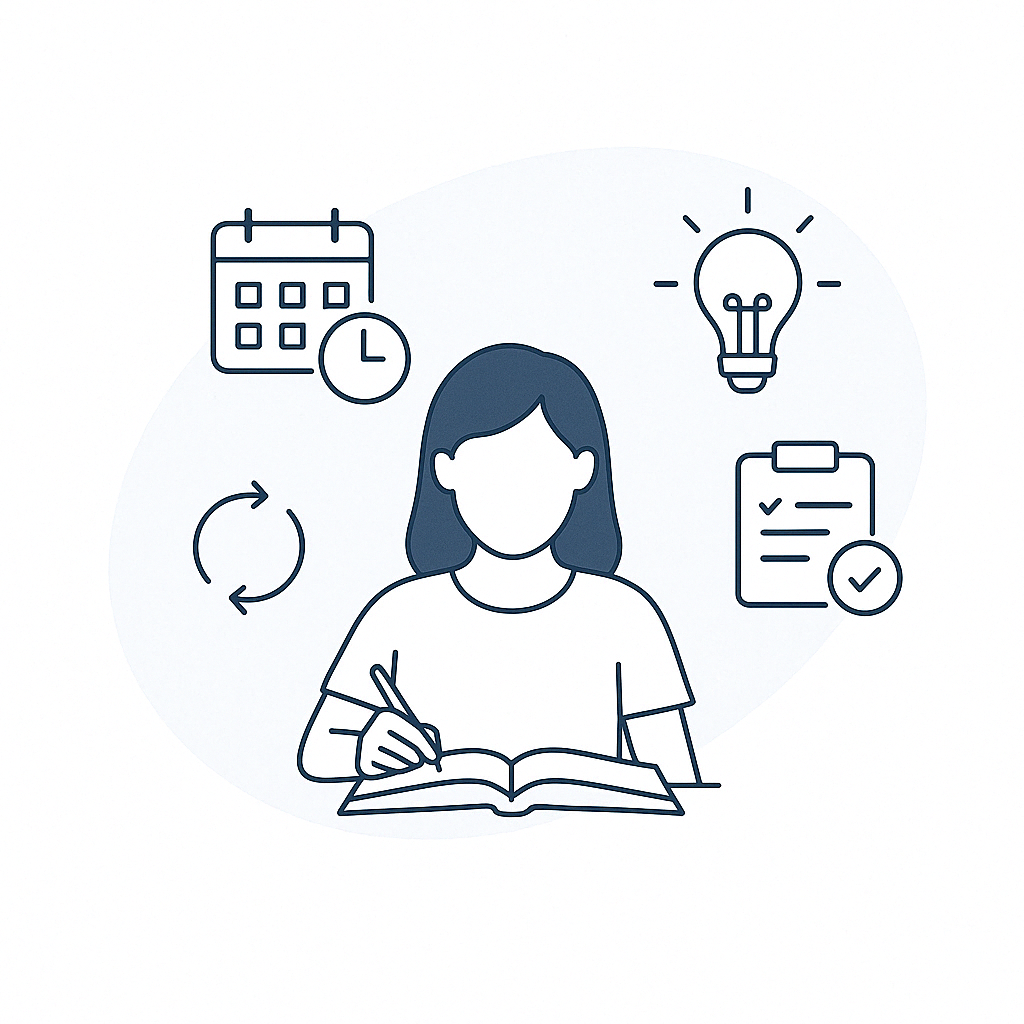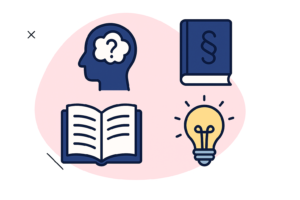Judiciary preparation is intense, long hours, fierce competition, and the constant pressure to perform can easily lead to burnout. It’s a challenge that every aspirant faces, but it doesn’t have to derail your progress. By adopting the right strategies, you can stay focused, manage stress, and keep your mental health intact.
In this blog, we’ll share practical tips on how to prevent burnout, prioritize your well-being, and establish study habits that will sustain you through this demanding journey. With the right approach, you can navigate the challenges of judiciary prep and emerge stronger and more prepared.
What is Burnout, Really?

Burnout isn’t just about being tired. It’s a state of deep emotional, mental, and physical exhaustion; often caused by prolonged stress and lack of balance.
For judiciary aspirants, burnout can sneak in through intense study hours, unrealistic expectations, or simply the weight of ambition. Over time, this may result in disinterest, poor performance, and feelings of helplessness.
Academic burnout shows up as:
- Feeling drained, even after rest
- Losing motivation for subjects you once loved
- Declining grades despite consistent effort
- Emotional detachment and negativity
- Anxiety, stress, or constant worry about exams
The key is to spot it early and act mindfully. Now, let’s dive into five tried-and-tested tips to avoid burnout and thrive in your prep journey!
Tip 1: Focus Hours – Study Smarter, Not Longer
Ever found yourself “studying” for hours but retaining little? That’s where Focus Hours come in. This method, like the popular Pomodoro Technique, breaks your study time into short, highly focused bursts followed by breaks.
✨ Here’s how to do it:
- Study for 25 minutes with zero distractions.
- Take a 5-minute break.
- After four rounds, rest for 15–20 minutes.
These mini-sprints help you stay sharp, avoid mental fatigue, and beat procrastination. Use tools like Forest or Focus To-Do apps to make it fun!
Pro Tip: Set clear goals for each block. For instance, “Finish reading Article 14 interpretation cases” rather than “Read Constitution.”
Tip 2: The Law of Diminishing Returns – Know When to Pause
More hours of studying doesn’t necessarily mean better performance. In fact, the law of diminishing returns shows that after a certain point, the effort you put in yields smaller and smaller results. It’s a key insight for anyone preparing for a tough exam like the judiciary.
Recognizing when you’ve reached this point is essential. Instead of forcing yourself to continue, take a break, switch tasks, or even rest. Sometimes, the smartest move is to step away and recharge, rather than pushing yourself past your limits.
Tip 3: Plan Breaks That Recharge, Not Drain
Breaks can either make you or break you; literally. Ever taken a “5-minute” Instagram scroll that turned into an hour? We’ve all been there.
💡 Here’s how to take productive, energising breaks:
- Practice mindfulness or deep breathing
- Listen to calming music or a podcast
- Do light stretches or take a short walk
- Call a friend or spend time with family
- Paint, sketch, or read something fun
These mini reboots can boost your focus and creativity while protecting your mental peace.
Tip 4: Mix Active and Passive Studying for Maximum Impact

Judiciary prep isn’t just about reading; it’s about retaining and applying what you learn. That’s where the balance of active and passive studying comes into play.
Passive techniques like reading notes or watching videos are great to start.
Then switch to active techniques like:
- Teaching concepts to a peer (or your mirror!)
- Solving MCQs and writing answers
- Creating flashcards or mind maps
Keep alternating between the two to lock in your learning. Think of it as workout reps for your brain!
Tip 5: Ergonomics – Your Setup Matters More Than You Think
Studying for hours in a cramped, uncomfortable space? That’s a recipe for both burnout and back pain.
Ergonomics is all about designing a workspace that supports your body and mind.
Here’s how to create a setup that sets you up for success:
- Use a chair with lumbar support
- Keep your screen at eye level
- Take regular screen breaks to reduce eye strain
- Keep your desk clutter-free to stay mentally clear
- Add personal touches; a plant, soft lighting, or your favorite quote
Comfortable = Sustainable. Your body will thank you!
Final Thoughts: You’re Not a Machine; You’re a Dreamer with a Plan
Burnout doesn’t mean weakness. It means you’ve been strong for too long without a break. So take this as your sign to slow down, breathe, and reset. Your dreams are valid, and your wellbeing matters just as much as your rank.
Keep these five tips in your prep toolkit, and remember: It’s not just about working hard, it’s about working smart, staying balanced, and enjoying the journey.
Ready to master the art of balanced prep?
🎓 Explore more expert strategies and personalised plans on Edzorb Law.










 Features
Features






